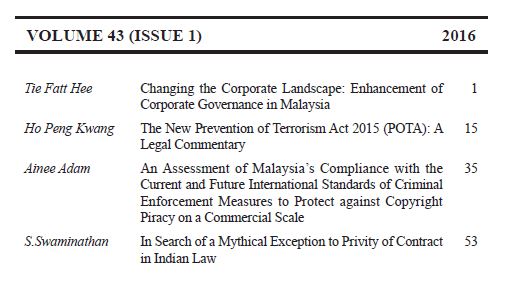Selected Legal Issues Concerning Surrogacy in Malaysia
Keywords:
surrogate, surrogacy, mother, child, IVF, ICSI, Gestational surrogacy, natural surrogacyAbstract
Surrogacy, which originates from the Latin term “surrogatus” (substitute), generally refers to an arrangement where a woman bears a child for another woman. The Oxford dictionary defines surrogacy as the process of giving birth as a surrogate mother or of arranging such a birth. Surrogacy can be used for two purposes, i.e. commercial or altruistic. Generally, there are two types of surrogacy, i.e., first IVF or Gestational surrogacy and secondly, traditional or natural surrogacy. The former refers to a situation where a woman, whose uterus has been removed but still has her ovaries, provides her eggs to be in vitro with her husband’s sperms by the IVF or ICSI procedure. The embryo is then transferred into the uterus of a surrogate mother. On the other hand, the latter refers to a situation where the surrogate is inseminated with the sperm of the male partner of an infertile couple. Surrogacy cases in Malaysia are on the rise. However, it is disheartening to note that the Malaysian legislature has not passed any specific law to govern the issue of surrogacy. Many couples who are unable to conceive a child enter into a surrogacy arrangement without realizing the consequences of this arrangement. Hence, the purpose of this paper is to look at certain legal issues that may arise as a result of a surrogacy arrangement. Basically, four legal issues would be discussed in this paper: first, the legitimate status of the child concerned, the right to guardianship and custody of the child, the child’s right to maintenance and the child’s right to inheritance. The writer would then make an attempt to suggest reforms to the issues above and also examine the possibility of enacting a law concerning surrogacy. In discussing the abovementioned issues, reference would be made to surrogacy laws in other jurisdictions, such as Queensland (Australia) and India.



